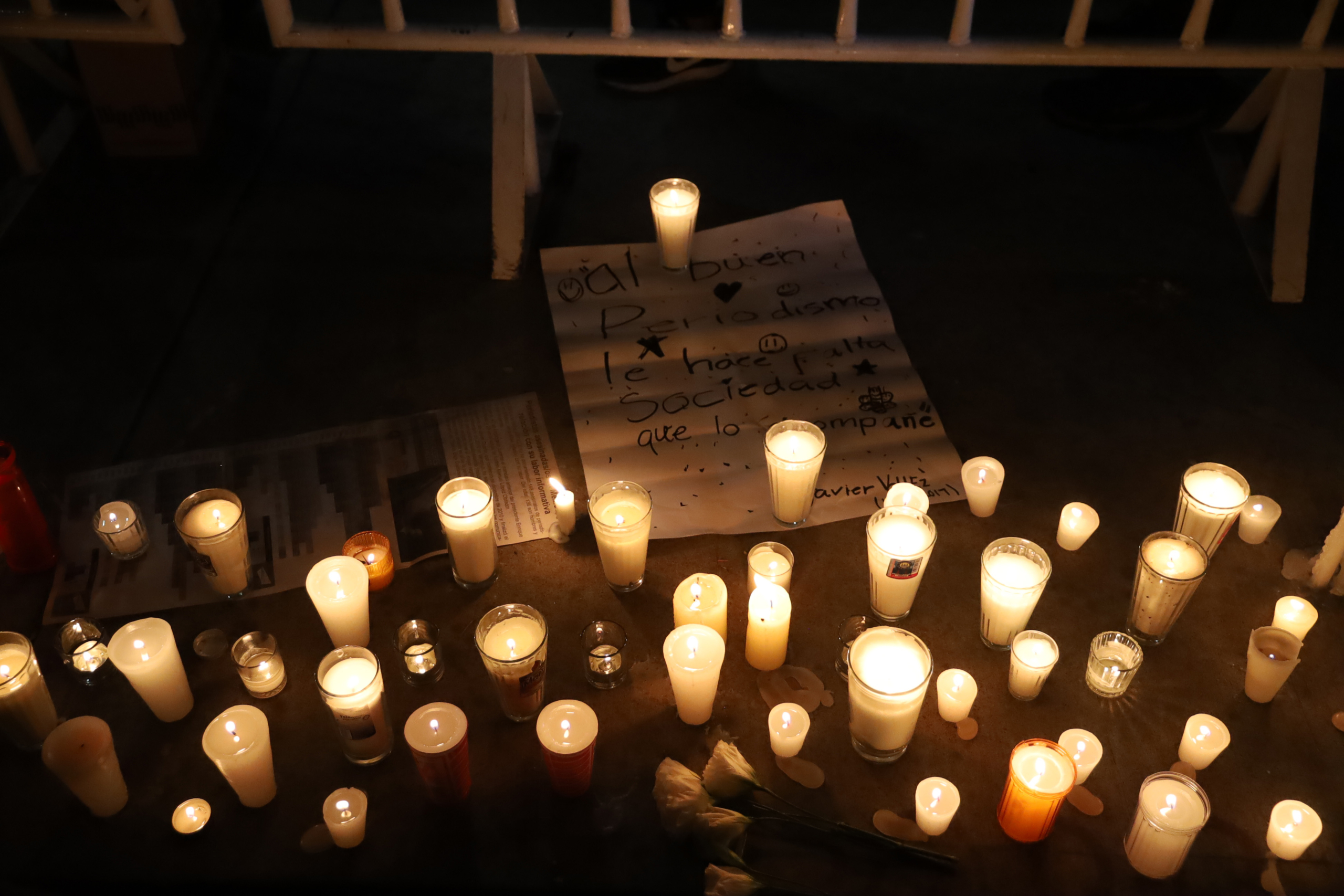Sign up for the daily CJR newsletter.
They came from across Mexico and they had stories to tell. A journalist from Guadalajara said grenades were set off in front of his office. An editor from northern Mexico spoke of armed men forcing their way into the newsroom and issuing threats. Another reporter said drug cartels bribed journalists at his publication to sabotage the work of their colleagues. Others didn’t speak. They didn’t need to. Everyone in the room knew that top editors at their publications had been murdered by the cartels.
All told, sixteen journalists had come to Mexico City for a safety workshop held on the sidelines of the annual meeting of the Inter American Press Association, a regional industry group that defends press freedom (and where I was invited to speak).
Javier Garza Ramos, an independent journalist from the northern city of Torreón, and María Idalia Gómez, who leads a Mexico City–based digital outlet called Eje Central, showed participants how to evaluate risk and develop appropriate security protocols. They plan to follow up with individual newsrooms over the next several months.
“The focus is preventative,” Garza told me. “If the authorities are not going to protect us, then we need to protect ourselves.”
The Hamas-Israel conflict is the deadliest for journalists in recent memory, with nearly sixty killed in a matter of weeks. But Mexico’s failing drug war is the most intractable. Year after year, Mexico is among the deadliest countries for the press. Over the past two decades, more than a hundred and sixty journalists have been killed and thirty more disappeared, according to a local human rights group, Propuesta Cívica (other groups using different methodologies cite a lower number). The impunity rate, by the same measure, is a staggering 95 percent.
The primary challenge for journalists in Mexico is simply staying alive. Journalists often wear bulletproof vests when they fear assassination. But as Garza pointed out, a protective vest will do nothing for you if you are kidnapped before being murdered, as is often the case in Mexico. In fact, there is only so much a small, underfunded news organization can do to build defenses against adversaries armed with assault rifles and grenades. “Before, with organized crime, you got three warnings,” one editor noted. “Now there is no warning.”
In response to the waves of violence, the Mexican government has initiated programs designed to keep journalists safer, including the appointment of a special federal prosecutor for crimes against free expression and a “safety mechanism” that provides threatened journalists with personal protective equipment, bodyguards, and panic buttons. Participants described such efforts as well intentioned but ineffective. “I was shot at twice and didn’t have a chance to push the panic button,” said one journalist.
In fact, the journalists often described the federal government as more of an adversary than a protector. The current president, Andrés Manual López Obrador, known as AMLO, has relentlessly attacked and criticized journalists, adopting Trumpian terms like “fake news.” Journalists have also faced an onslaught of defamation suits in many cases brought by officials, along with surveillance and spyware attacks. “I knew my phone was tapped even before Pegasus,” said a workshop participant of the Israeli-made spyware, which has been widely deployed against journalists in Mexico.
Living with danger every day while reporting on the country’s relentless drug-fueled violence has also taken an emotional toll. “I identify so deeply with the mother who has lost a child, and this has affected me tremendously,” said one reporter of the trauma of interviewing survivors.
So why has Mexico been so uniquely unable to protect journalists from violence?
“Impunity is a form of corruption that has existed for a long time and permeates all levels of government,” said Daniel Rosas, a top editor at El Mañana in Nuevo Laredo, who is still affected by the murder of a colleague nearly two decades ago. “It will be very difficult to overcome, because people have lost confidence in the authorities. There’s no accountability.”
Sara Mendiola, a lawyer and the executive director of Propuesta Cívica, has also been involved in the fight against impunity and through her legal efforts helped secure convictions in two key cases: the 2017 murders of Javier Valdez in Sinaloa and Miroslava Breach in Chihuahua. But Mendiola calls such cases exceptions and notes that many prosecutors across the country have been corrupted by organized crime.
Jan-Albert Hootsen, the Mexico representative for the Committee to Protect Journalists (where I served as executive director for many years), believes that, ironically, criminal justice reform in Mexico has complicated efforts to bring the killers of journalists to justice. Legal reforms intended to protect suspects from police abuse and improve respect for the rule of law have created higher evidentiary standards that Mexico’s woefully unprepared prosecutors struggle to meet. With escalating violence across the country, “impunity is now the norm,” Hootsen told me. “You have an entire generation of police officers, of prosecutors, of lawyers, of judges, but also of citizens who simply take it for granted.”
Mexico’s president serves a six-year term, known as a sexenio. Impunity and violence against the press has remained a critical and unaddressed feature of Mexico’s political landscape for the past four administrations, yet press freedom has not emerged as a major issue in the 2024 presidential campaign.
I admire the courage and determination of the journalists I met at the safety workshop and agree with Garza that if the government will not protect them, journalists must protect themselves. But given the array of threats they are facing—from drug-related violence to spyware—that is a lot to ask. Mexican journalists deserve the support of their government and their society. It is unconscionable and a stain on Mexico’s democracy that no president in the past quarter century has been able to provide it.
Has America ever needed a media defender more than now? Help us by joining CJR today.






